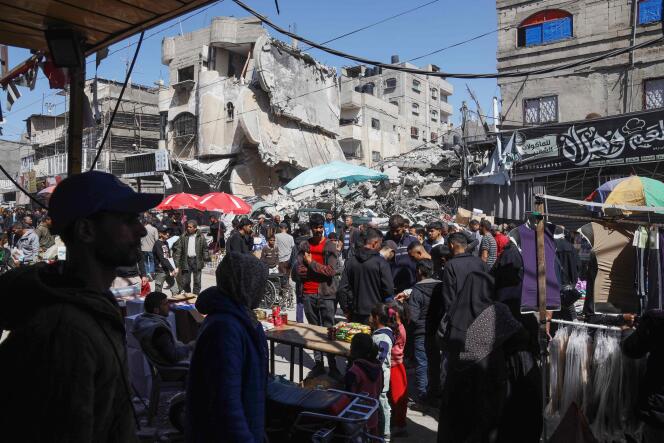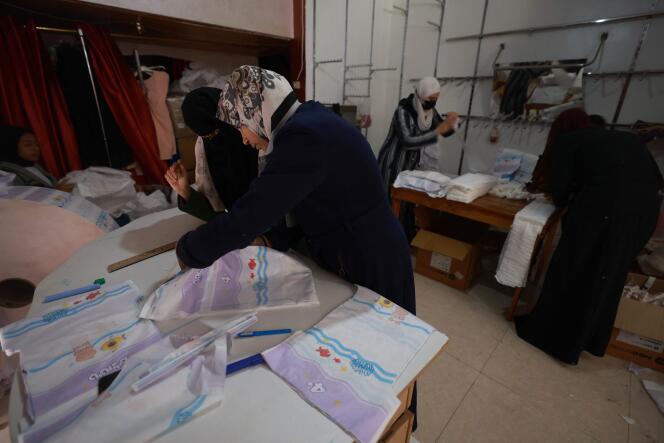
In the Al-Najma market in Rafah, in the south of the Gaza Strip, the stalls of street vendors display only the most basic products: cans of tuna and sardines, beans and lentils, a few fruit juices and sweets for the children. This year, Ramadan began in a gloomy atmosphere. After five months of war between Hamas and Israel, Gaza's 2.3 million inhabitants are facing severe shortages of food, water and medicines due to Israel's obstruction of humanitarian aid convoys entering the enclave. As a result, the prices of the few foodstuffs still sold on the markets are up to 10 times their pre-war levels, a prohibitive cost for most inhabitants.
Shortages and rising import costs are not the only factors behind this price surge. According to an investigation by the Organized Crime and Corruption Reporting Project (OCCRP), an investigative platform partnering with Le Monde, war profiteers are exploiting malfunctions in the supply chain, from transport to sale, to get rich. The entry of commercial products is hampered by the security checks that have been imposed by Israel since the start of the war and the constraints of transport, such as multiple inspections, long queues at checkpoints and devastated roads.
"Prices have increased tremendously. Everybody is complaining, and many cannot buy anything," Hala Emran, a displaced mother of eight, told the OCCRP after inspecting the goods at the market. A kilo of tomatoes costs the equivalent of €4, compared with 30 cents before the war. The price of a chicken has risen from €3 to €20. Three kilos of sugar cost €20, up from €2. Emran can't even buy a cookie for her young son. The cheapest cookies on the market now sell for over €2 each.

Wesam Shaath, scoured all the stores in Rafah to find affordable diapers for his infant twins. But to no avail. A pack now sells for €50, compared with the usual €5. A cab driver between Khan Yunis and Rafah, this father used to earn up to €10 a day before the war. He has no income now that the war is raging in Khan Yunis and 1.3 million Gazans are confined to Rafah. "Things are very difficult for us. With no income, I can't buy anything," he said.
Trucks blocked for 50 days
The Rafah and Kerem Shalom crossings are the two gateways into Gaza for trucks carrying humanitarian aid and commercial goods. Cargo arriving from Egypt is first unloaded and inspected at Israeli checkpoints before being brought back to the two border points, creating huge queues and delays. According to Ismail al-Thawabteh, head of the Hamas-led government's media office, trucks sometimes wait on the Egyptian side of the border for 50 days.
You have 67.84% of this article left to read. The rest is for subscribers only.